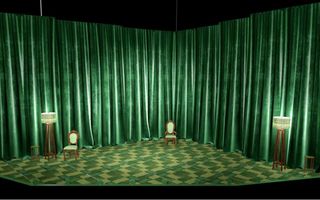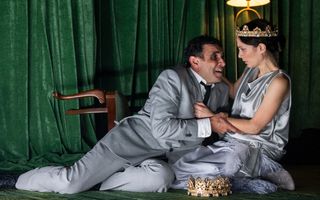
- Macbeth is one of Shakespeare’s shortest plays, coming in at around half the length of Hamlet. It has arguably the most concise plotline of any of Shakespeare’s plays – the action follows one storyline without multiple subplots.
- There was an 11th century Scottish King named Macbeth, and although Shakespeare did not replicate history in his play, there are some commonalities between fact and fiction. Macbeth did kill King Duncan in order to take the throne, though in real life this happened in battle, not while Duncan was sleeping in Macbeth’s castle. Also, history tells us that rather than being an older, much-loved king, Duncan was a young and rather ineffectual ruler. The real Macbeth, as opposed to Shakespeare’s version, ruled a stable Scotland for seventeen years and was a well-regarded leader of his people.
- King James I of England was a major influence for Shakespeare in writing Macbeth for several reasons. James was originally from Scotland and was patron of Shakespeare’s troupe, The King’s Men. James’ obsession with witchcraft led him to write the 1597 book Daemonologie, a rambling text in which he lays out his belief in witches and their danger to society.
- King James I also claimed to be directly related to the real-life Banquo, and so Shakespeare made sure the character of Banquo in his play was noble and not led into evil like Macbeth. In the play Banquo is told by the Weird Sisters that he will “get Kings, though thou be none” (Act 1, Scene 3), directly referencing King James I’s eventual rise to the throne.
- The law of primogeniture was not followed in Medieval Scotland, meaning the King’s son wasn’t necessarily next in line to the throne. This is why, despite King Duncan having two sons, Macbeth firmly believes that he may be named the next ruler.
- The Weird Sisters never refer to themselves as ‘witches’. They are only called Witches in the stage directions.
- ‘Weird’ didn’t mean the same thing in Shakespeare’s time as it does to us today. In fact, ‘weird’ referred to fate, destiny and the ability to be prophetic. So the ‘Weird Sisters’ in fact related to their ability to predict the future.
- Shakespeare didn’t write the character of Hecate or the two songs that appear around her entry – these were added at a later date by Thomas Middleton.
- Shakespeare scholar and critic Harold Bloom famously called Macbeth and Lady Macbeth’s union “the happiest marriage in Shakespeare.” He said “Their passion for each other is absolute in every way.” (From Harold Bloom, Macbeth: The Dagger of the Mind)
- Macbeth is widely referred to as ‘The Scottish Play’ within the theatre community because of the long-held beliefs around superstition and suspected curses. Read our fact sheet on the Macbeth superstition to find out where this theory originated and some stories from the history of the play in production.









